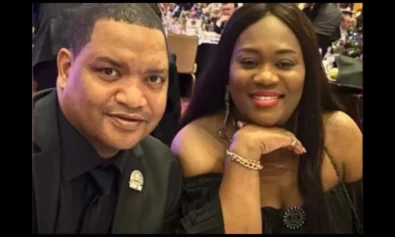A Black physicist made history Friday when she became Florida State University’s first Black woman to earn a doctoral degree in nuclear physics.
Kalisa Villafana is also only the 96th Black woman in the country with a Ph.D. in physics, according to the university.
She said her graduation felt “overwhelming,” in an interview with Florida State University News.
“You have to pursue something you’re passionate about because it’s a long journey,” she told the news source. “I felt like I wanted to quit very often in the beginning but with each challenge, I succeeded.”
Villafana said she’s wanted to be a physicist since she was 12 years old and began conducting science experiments at Holy Faith Convent in her native country of Trinidad and Tobago.
“It was a strict Catholic girls’ school,” she said. “We had a lot of courses, and we were exposed to tons of physics experiments. The teacher would explain that this is how we understand how the universe works. I thought it was interesting. From then on, I said I want to be physicist. That never changed.”
Villafana, a former mentor to minority students at her school, told Florida State University News she hopes to continue helping young people in her home country accomplish their goals.
“I want to show them how to get to the next point,” Villafana said. “In Trinidad, many people don’t know how to get to the United States and get a Ph.D. that’s paid for by the school. They don’t know how to go from being an international student from the islands to a doctor in the U.S.”
Villafana told Florida State University News she ultimately wants to be a medical physicist working in cancer research but she plans to work as a process engineer with the Intel Corporation in Arizona.
She said “even though the field is predominantly white and male,” she hopes young girls are inspired when they see her graduating alongside other minority women earning their doctorates in nuclear physics.
“Hopefully, they see that they too can be a physicist,” Villafana said. “You may not see a lot of us, but we’re there. We’re out there.”


